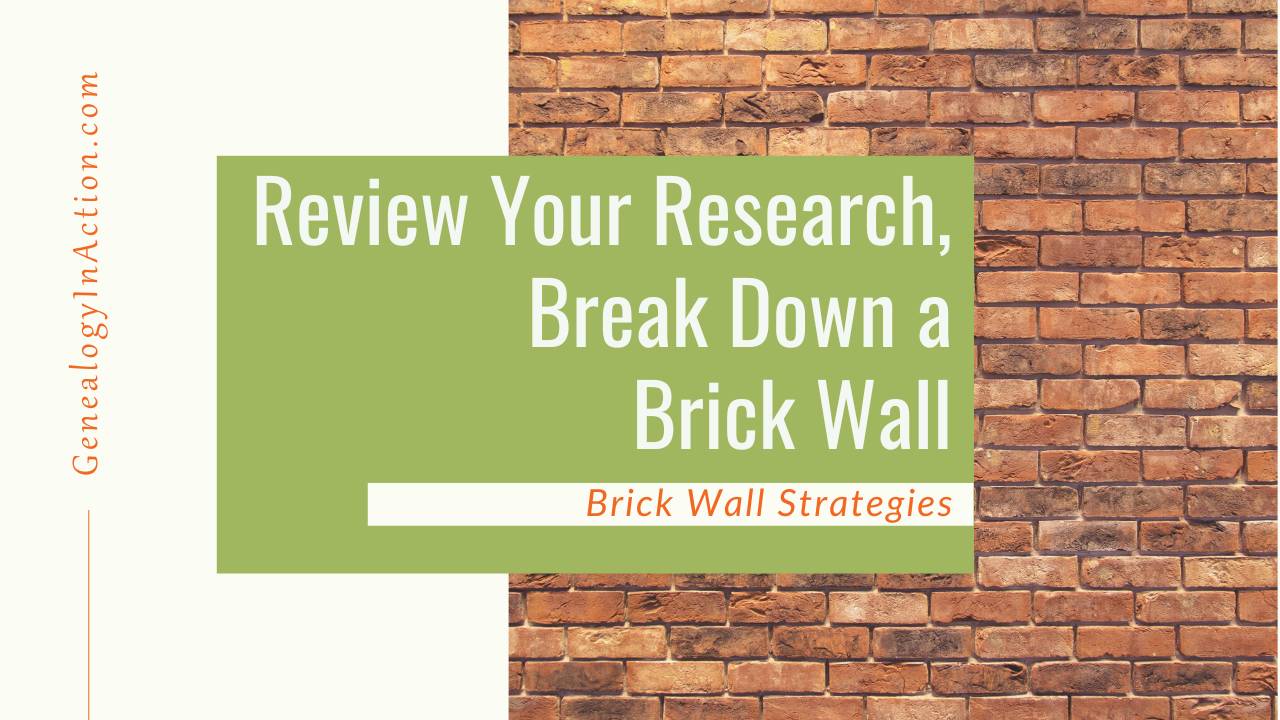
Review Your Research, Break Down a Brick Wall
Jan 18, 2023Did you know that most of my “brick walls” have been solved by doing one simple thing?
Truth be told, when I sit down and review the research I’ve already done, I have a habit of finding the answer to my research question or at least some clues to point me in the right direction. A lot of this has to do with that old research I did when I was a newbie and didn’t know any better. I missed a lot of key information in those days, as I’m sure you can relate.

The process I use to review my research has a few steps to it, and once I’ve completed those steps, here are the things I’m on the lookout for:
- Are there significant gaps of time that are not accounted for?
- Are any of the core records, such as vital, census, land, cemetery, etc., missing?
- Are there any weak sources? For example, do I have a published abstract of a will, but not the actual will? Or maybe I found an index entry in a database, but haven’t obtained the actual record yet.
- Was any information previously misinterpreted or misread? This is common when we’re just starting out or when we use records that we’re not entirely familiar with.
- Are there any conflicts? For example, do most records seem to agree on a point, yet one seems completely out in left field?
- Are there any new clues? For example, when I was new to deeds I often missed the wife’s dower release at the end of the deed. Her identity could be a clue in several research question scenarios.
- Are there records where background information would be helpful in order to better understand the record? For example, understanding the laws that governed the record’s creation can be critical to interpreting the record correctly.
- Are there any FAN Club members I need to investigate? If you’re not familiar with the FAN Club, check out this blog post.
- Did any new questions or theories pop up?
I record all of this in a Word document, with a heading for each category to keep it organized. All of this information will inform my decision of how to move forward and plan my next steps.

Before you hit the do over button, I want you to try this instead. Pick a research question and review everything you have related to it. Be on the lookout for gaps in time, missing core records, weak sources, misread or misinterpreted information, conflicts, new clues, record background, FAN Club members, and new questions or theories. Record them in some way and be sure to use the information when you are figuring out your next steps.
If you found this article helpful, be sure to add the Genealogy In Action blog to your favorite RSS reader.
© Julie Tarr. This article was first published at Genealogy In Action; appearance of this article elsewhere, without my permission, violates copyright.